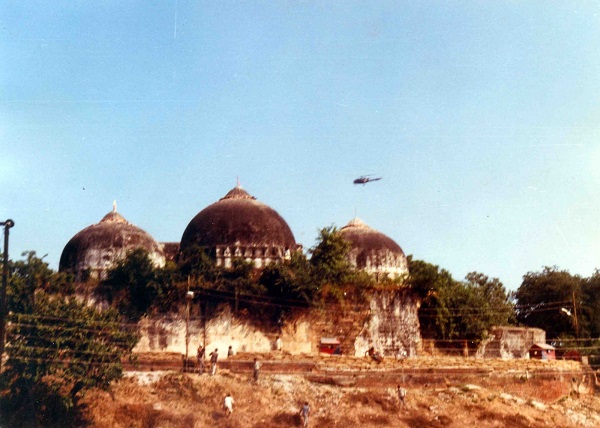New Delhi, The Supreme Court on Friday rejected a plea by a Muslim party objecting to daily hearings in Ayodhya’s Ram Janmabhoomi-Babri Masjid land dispute case.
A Constitution bench, headed by Chief Justice Ranjan Gogoi, reiterated that the day-to-day hearings will go on, and told the Muslim party that it may be allowed a break when required or when its turn comes up for arguing the case.
Soon after the hearing in the case started on Friday morning, senior advocate Rajeev Dhavan filed the plea on behalf of his client and said it would be difficult for the parties if the top court conducts hearings on all five working days in a week.
“We don’t get time for preparation of arguments. I will have to leave the brief, if this court goes on in this manner. This is not right. A matter like this cannot be rushed through,” said Dhavan, adding that this was the beginning of the first appeal.
He termed the curent set-up of hearings as “inhuman” and “practically impossible” and said: “Cannot go on like this.”
Chief Justice Ranjan Gogoi assured Dhavan that the top court would consider his grievances and revert to him at the earliest.
Usually, a Constitution bench conducts hearings thrice a week and takes up fresh and miscellaneous matters on the remaining two days.
The Ayodhya dispute case — pending for several decades — was fast-tracked with daily hearings after a Supreme Court appointed mediation committee failed to develop a consensus among the parties to arrive at an amicable resolution.
The daily hearings also assume significance, as the head of the Constitution bench Chief Justice Ranjan Gogoi is scheduled to retire mid-November.
The daily hearings involve a plethora of documents running into several thousand pages.
The 16th century Babri Masjid in Ayodhya in Faizabad district was razed by a mob on December 6, 1992 and a makeshift temple for Lord Rama was built at the site. Hindus say the mosque had been built at the birthplace of Lord Ram.








